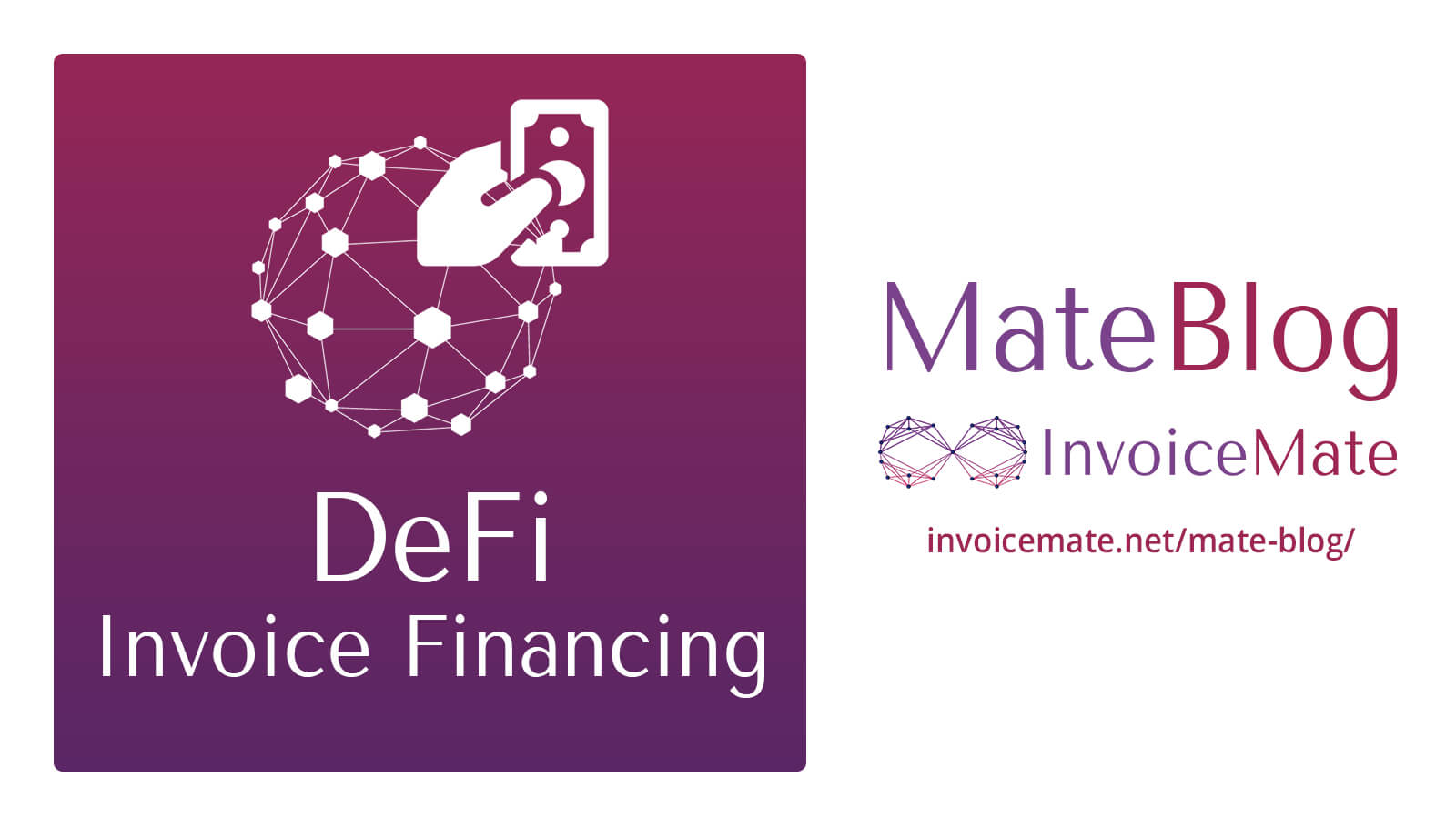Connect With Us

This article covers the basics of DeFi Invoice Financing, the latest type of invoice financing.
There is a general consensus that the core purpose of a business is to remain profitable. For the purpose, besides all the efforts a business, needs to invest money. It can be safely said that money holds a pivotal value in any financial system. Any business irrespective of their size always need money to grow. No business has unlimited financial resources. From time to time they require additional financing. For this, they need external financial resources as well. Most popular among them are banking and other financial institutions. Businesses usually require both long-term as well as short-term financing according to their specific requirements. Invoice financing has always been a very popular means of short-term financing among businesses. The most practiced form of invoice financing is Invoice Factoring. Both Invoice Financing and factoring serve the same purpose, the only difference is the mechanism of execution. The estimated size of the global invoice financing/factoring market is around 3400 Billion USD in 2021.
Invoice Financing
Invoice financing allows companies to borrow money against sums owed to them by consumers. Businesses can boost cash flow, compensate staff and vendors, and reinvest in operations and development sooner with invoice funding than they could if they had to wait for their customers to pay their balances in full. As a fee for borrowing money, businesses pay a percentage of the invoice sum to the lender. Customers who take a long time to pay, as well as difficulties accessing other forms of business credit, can be solved with invoice financing.
Invoice financing is sometimes referred to as Accounts receivable financing, or even “receivables financing,” only.
Invoice Factoring
Invoice factoring is another type of invoice finance mechanism, the major difference between invoice financing and factoring can be described as follows. In invoice financing, the customer himself collects the due invoice amount from their vendors and paybacks to the lender the borrowed amount plus markup/service charges as per agreement. In invoice factoring, the lender collects the due amount from the customers of the borrower and pays the remaining amount (if any) after deducting the lent amount as well as the markup/service charges.
What is DeFi
DeFi is an abbreviation for Decentralized Finance. It is a mechanism for making financial products available on a decentralized blockchain network that is open to the public. In the DeFi system, instead of going via intermediaries like banks or brokerage houses, anyone can utilize them directly. The major difference in DeFi is that unlike Financial institutions, where a person is required to submit some kind of identity documents like government ID, Tax Number, Passport, or Social Security Number, No such document is required for financial transactions on DeFi.
DeFi can be termed as an ecosystem of trustless financial services over blockchain without 3rd party or central administration and intervention.
Elaborating further, DeFi is a system where blockchain-based software facilitates peer-to-peer financial transactions between buyers, sellers, lenders, and borrowers. These transactions can be peer-to-peer or with a software-based middleman. On the other hand, a traditional digital transaction system involves the third party even at the most basic level like paying for a cup of coffee. That third party not only controls the transaction but also has the actual control of the funds.
This decentralization is achieved through the utilization of multiple technologies and protocols. The blockchain, software, smart contracts, are among those used for this purpose. Smart contracts play a vital role in decentralized finance. Smart contracts make it possible to enforce automated implementation of the terms decided between peers. Irrespective of the software used, DeFi enables peer-to-peer financial transactions by removing financial intermediary bodies. Like cryptocurrency platforms anybody with an active internet connection can access DeFi services.
DeFi Invoice Financing
DeFi provides an ideal use case in the form of Invoice Financing. DeFi offers an independent mechanism for borrowing and lending. DeFi Financing doesn’t require 3rd party to execute the financing transactions.
Financing can be done in two ways.
Peer To Peer Financing
In this scenario individual, or organization can get the finance directly from a peer.
Pool Based Financing
In this method, the lenders provide funds (liquidity) to a pool that offers the financing.
Benefits Of DeFi Invoice Financing
In DeFi the financing is much easier than the traditional financial institutions. It is the most straightforward method of financing. It doesn’t require a 3rd party, making the process simpler, quicker, and cost-effective. The anonymity and privacy of the parties can also be maintained if the peers require so. Interest rates can also be kept very lower in contrast with the traditional financing options.
- Speedy Loan origination
- Consistent Lending Decisions
- Self-custody
- Automated documentation
- Real-time settlement of the transaction
- Real-time tracking of the transaction
- Fraud Proof
- Risk profiling of clients
- Distributed ledger technology
We’ve seen that invoice financing/factoring is an important instrument for business cashflows. DeFi is a next-generation financing medium that promises to make financing more accessible, affordable, and manageable. Though DeFi is in its earlier stage and requires a lot more in terms of rules and regulations, yet it has the potential to disrupt the conventional financial markets. DeFi invoice financing can make the process of invoice financing better than before.
